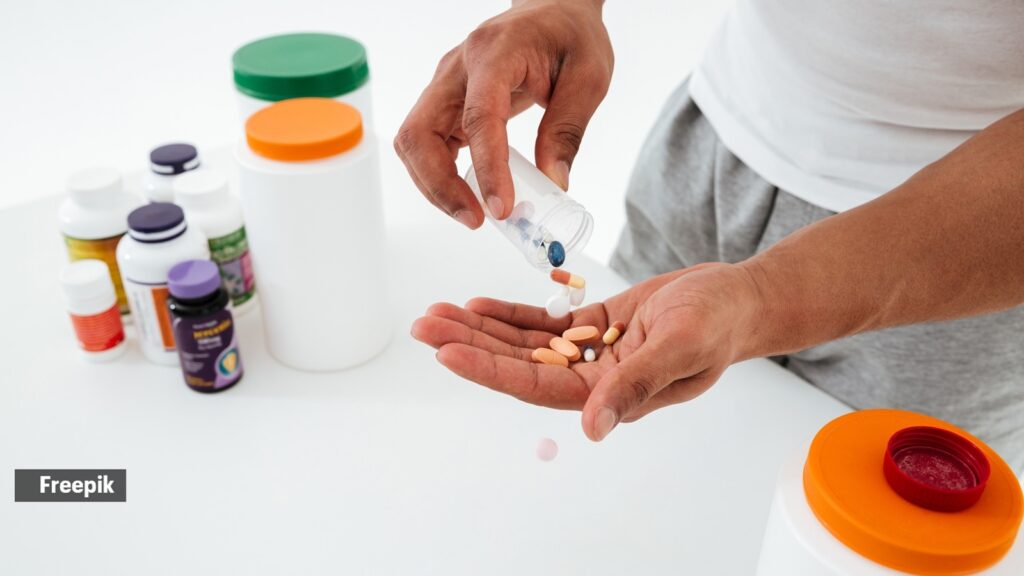“`html
Nutritionist Reveals Which Supplements to Avoid and Which Ones to Take: Ensuring Quality Through Trusted Lab Testing
In recent years, dietary supplements have become a cornerstone of maintaining health and wellness. However, as highlighted by a nutritionist’s expert reveal, not all supplements are created equal. Some products carry hidden risks including contamination, unnecessary additives, and questionable efficacy. Ensuring safety and efficacy starts with stringent third-party testing—enter Qalitex, an ISO 17025–accredited microbiology and analytical chemistry laboratory based in Irvine, California.
Which Supplements Should You Avoid?
The nutritionist advises consumers to be cautious with supplements that lack transparent ingredient lists or certification. Common pitfalls include:
- Supplements with unverified heavy metals, such as lead or mercury
- Products without Certificate of Analysis (CoA) indicating thorough testing
- Over-promising supplements lacking scientific validation
- Supplements prone to microbiological contamination
These issues can result in health risks rather than benefits. Therefore, relying on supplements that have undergone rigorous testing ensures safety and compliance.
Recommended Supplements and Why Quality Testing Matters
Quality supplements typically display clear lab certifications, standardized dosages, and compliance with regulatory bodies such as the FDA. As per the nutritionist’s guidance, consumers should prioritize:
- Supplements with validated ingredients consistent with labeled claims
- Products tested for heavy metals and microbial contaminants
- Brands engaging in shelf-life and stability studies to ensure potency until expiration
Achieving these assurances requires partnering with trusted laboratories like Qalitex, which provides comprehensive analytical services including analytical chemistry lab testing and microbiology testing services.
Qalitex: Your One-Stop Quality Control Partner for Supplement Testing in Southern California
Based in Irvine, California, Qalitex stands as a premier ISO 17025 accredited testing laboratory. This accreditation affirms Qalitex’s commitment to the highest testing standards, crucial for supplement brands aiming for FDA compliance and consumer safety.
Qalitex’s extensive service menu includes:
- Heavy metal analysis for supplements: Ensures toxic elements like lead and arsenic are below hazardous thresholds (learn more).
- Shelf-life and stability studies: Validates that supplements maintain potency and safety throughout their market lifespan (discover services).
- Microbiology testing services: Detects harmful microbial contamination to avoid product recalls (view offerings).
- Method development and validation: Customizes and validates test methods to ensure accuracy and reproducibility (method services).
- Certificate of Analysis (CoA) testing: Provides credible documentation certifying product quality (CoA testing details).
Accreditation & Regulatory Compliance
Many consumers overlook the significance of third-party lab accreditations. At Qalitex, every testing protocol abides by USP AOAC validated methods ensuring strongest scientific support. Their FDA-compliant product testing guarantees that supplements meet all necessary regulatory standards, positioning brands for success in competitive markets.
Why Testing Supplements Is Crucial: From Safety to Market Trust
Testing supplements transcends compliance; it is an investment in consumer safety and brand reputation. Products contaminated with heavy metals or microbiological hazards can lead to serious health complications and costly recalls. Stability studies prevent premature degradation, ensuring customers receive full benefits. Through laboratory partnerships like Qalitex, supplement companies elevate product integrity while consumers gain peace of mind.
Frequently Asked Questions
1. What supplements should I avoid according to nutritionists and how does lab testing impact this?
Nutritionists recommend avoiding supplements without transparent labeling and third-party verification. Lab testing, such as heavy metal analysis and microbiology screening done by ISO 17025 accredited labs like Qalitex, helps ensure supplements do not contain harmful contaminants.
2. How does Qalitex’s ISO 17025 accreditation guarantee the quality of dietary supplement testing?
ISO 17025 accreditation confirms that Qalitex adheres to international standards for laboratory competence, ensuring accurate and reliable test results for supplements, which is essential for both regulatory compliance and consumer safety.
3. Why is heavy metal analysis important for dietary supplements, and can Qalitex provide this service?
Heavy metals like lead and arsenic can accumulate in supplements during manufacturing. Qalitex offers specialized heavy metal testing services to detect these contaminants, protecting consumers from toxic exposure.
4. What role do shelf-life and stability studies play in supplement safety, and how can Qalitex assist?
Shelf-life and stability studies ensure that supplements remain effective and safe until their expiration date. Qalitex conducts these studies to validate product longevity under various storage conditions.
5. How can a Certificate of Analysis (CoA) from Qalitex enhance consumer confidence in supplements?
A CoA provides documented proof of testing results, proving that products meet quality specifications. Qalitex issues reliable CoAs following rigorous testing, which helps brands build trust with consumers and comply with regulations.
6. Where is Qalitex located and can local Southern California supplement manufacturers benefit from its services?
Qalitex is located in Irvine, Southern California—a strategic advantage for regional supplement companies seeking rapid and compliant product testing. Local manufacturers benefit from expedited service and direct expert consultation.
Ready to ensure the safety and quality of your dietary supplements? Get a quote from Qalitex today, Southern California’s trusted ISO 17025–accredited laboratory dedicated to comprehensive microbiology, analytical chemistry testing, and regulatory compliance.
“`





